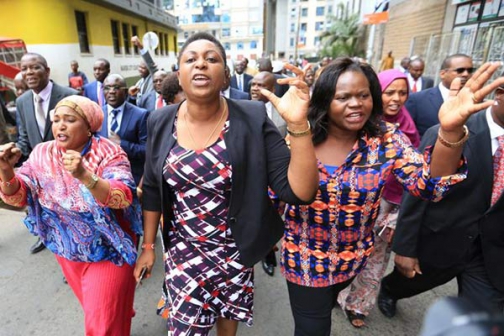×
The Standard e-Paper
Home To Bold Columnists

Jubilee MPs on Thursday approved changes to the Elections Laws (Amendment) Act 2016, setting the stage for another political showdown eight months to the General Election.
The proposed amendments allow the Independent Electoral and Boundaries Commission (IEBC) to come up with a manual system of identifying voters and transmitting results, complementary to the electronic tallying system.